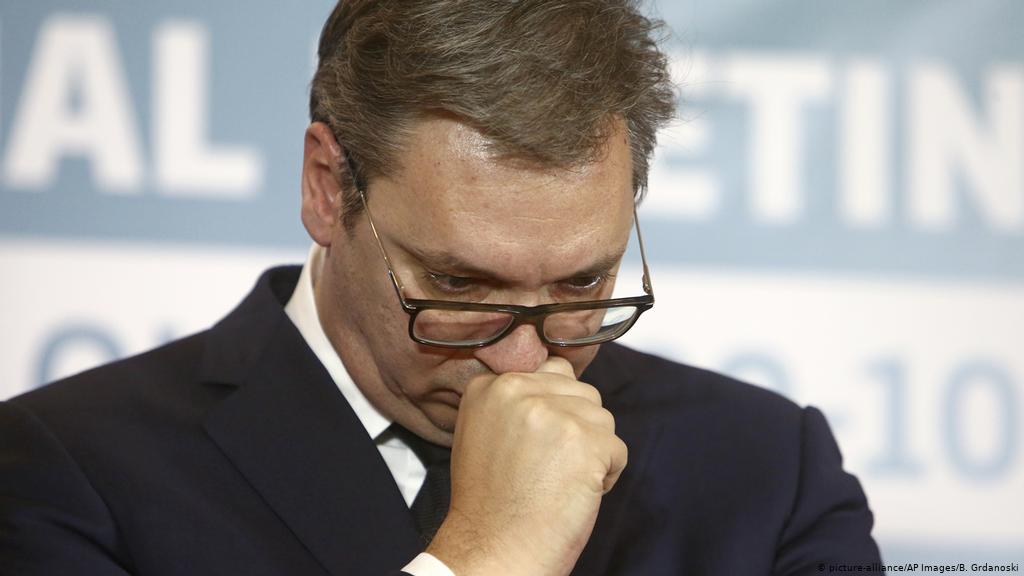
Following the agreement to remove all entry and exit documents for citizens of Kosovo and Serbia when entering each respective country, Serbian President Aleksander Vucic has made it clear that it is not to be interpreted as any form of recognition and issued another veiled threat toward Pristina.
On Saturday, it was announced that Serbia would remove the need for Kosovo citizens to fill out any additional paperwork when entering the country. In turn, this means Kosovo will abandon its plans of reciprocity due to come into force on 1 September.
Many said this amounts to a de facto recognition of Kosovo as a sovereign state, something Belgrade has refused since the end of the bloody Kosovo-Serbia war and Pristina’s declaration of independence in 2008.
“Achieving an agreement on the documents is a good thing, but it is a verbal agreement,” he told Euronews Serbia, adding that it does not mean that Kosovo is recognised as an independent state.
On the topic of license plates, which still remains unresolved, he responded to Kosovo Prime Minister Albin Kurti’s statement that he hopes a solution is found by October, calling it a threat and issuing one in return.
“This means that he wants conflicts and continued problems. They have an agreement on freedom of movement that also concerns the table in point seven. but it is different here and a more complicated situation with KS plates,” he said, adding that he and Serbia will fight and protect their people, hoping that “I hope no other issues appear.”
“I’m afraid that other things are coming and that someone wants to lead us into conflicts, and ours is to protect our position as long as we can and avoid it, but when we can’t anymore, you’re pushed against the wall, and you have nowhere to go,” said Vucic.
Macedonian investigative journalist and analyst Xhemajl Rexha tweeted a notice in Serbian and English, purporting to be a leaflet from Belgrade instructing people not to interpret the agreement as any form of recognition.
“It cannot be interpreted as recognition of unilaterally declared independence of Kosovo; it is without prejudice to determining Kosovo’s final states, nor can it be interpreted as Belgrade relinquishing its rights conferred to it under the United Nations Security Council Resolution 1244 (1999).” it reads.
Kurti, on Sunday, stated in a speech before the Vetevendosja Movement council that he is keen to reach an agreement with Serbia based on mutual recognition. In the absence of agreements, he said Kosovo would simply establish full reciprocity on all matters.
“At the last meeting in Brussels, I presented a general framework with six chapters, with many elements, expressing the will and readiness to meet even more often to finalise this agreement. But in the absence of agreement, there will be full reciprocity which will be established gradually.,” he said.
Kurti continued that reciprocity in the relationship is dictated by sovereignty, and Kosovo cannot behave neutrally to itself or create dualism in the country’s legal system.
Pristina’s agreement to suspend the implementation of a requirement that all Kosovo citizens must have Pristina-issued license plates expires on 1 September. The situation seems unlikely to be resolved, leading to fears of reignited tensions in the country’s Serb-majority north.

